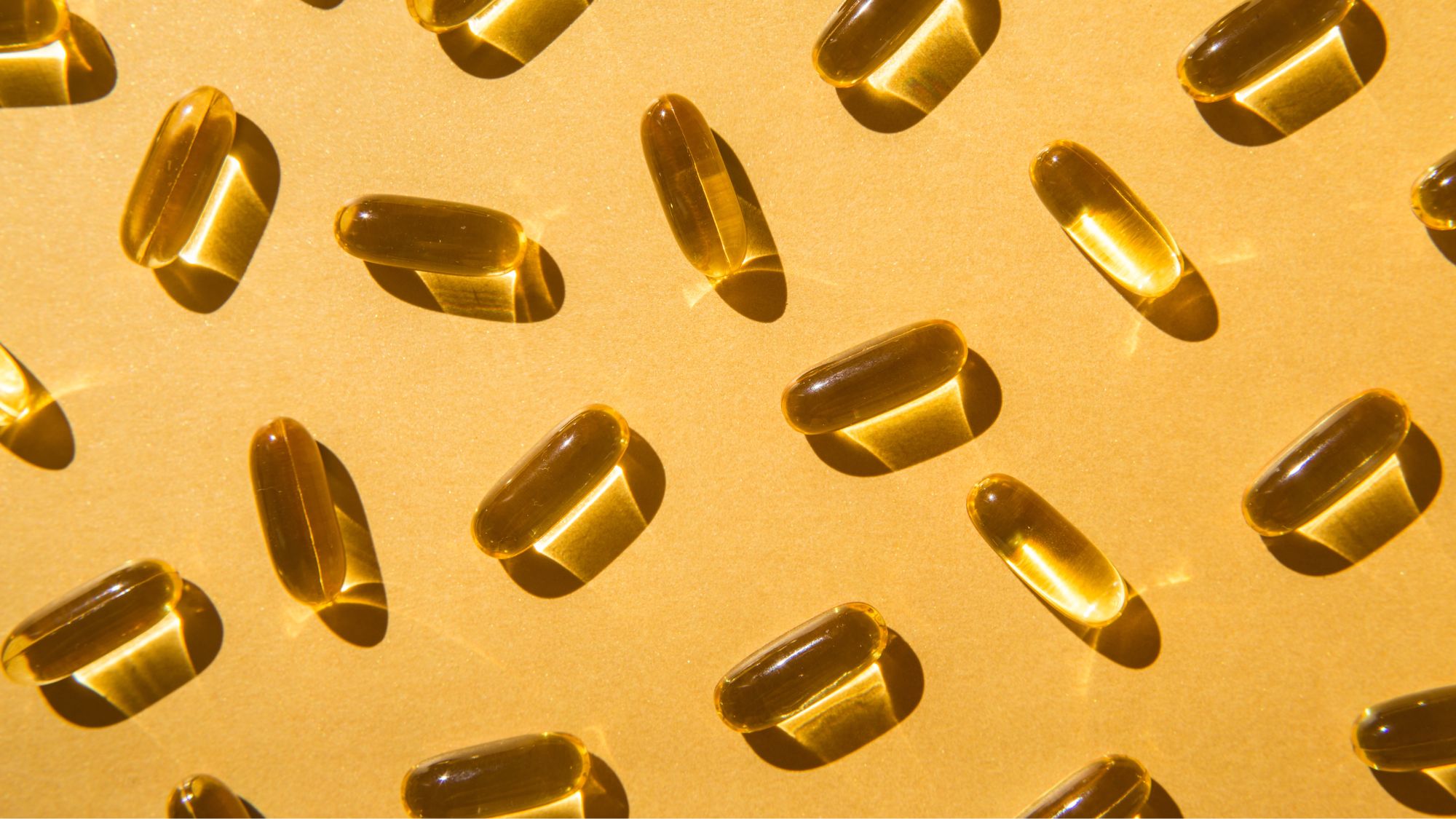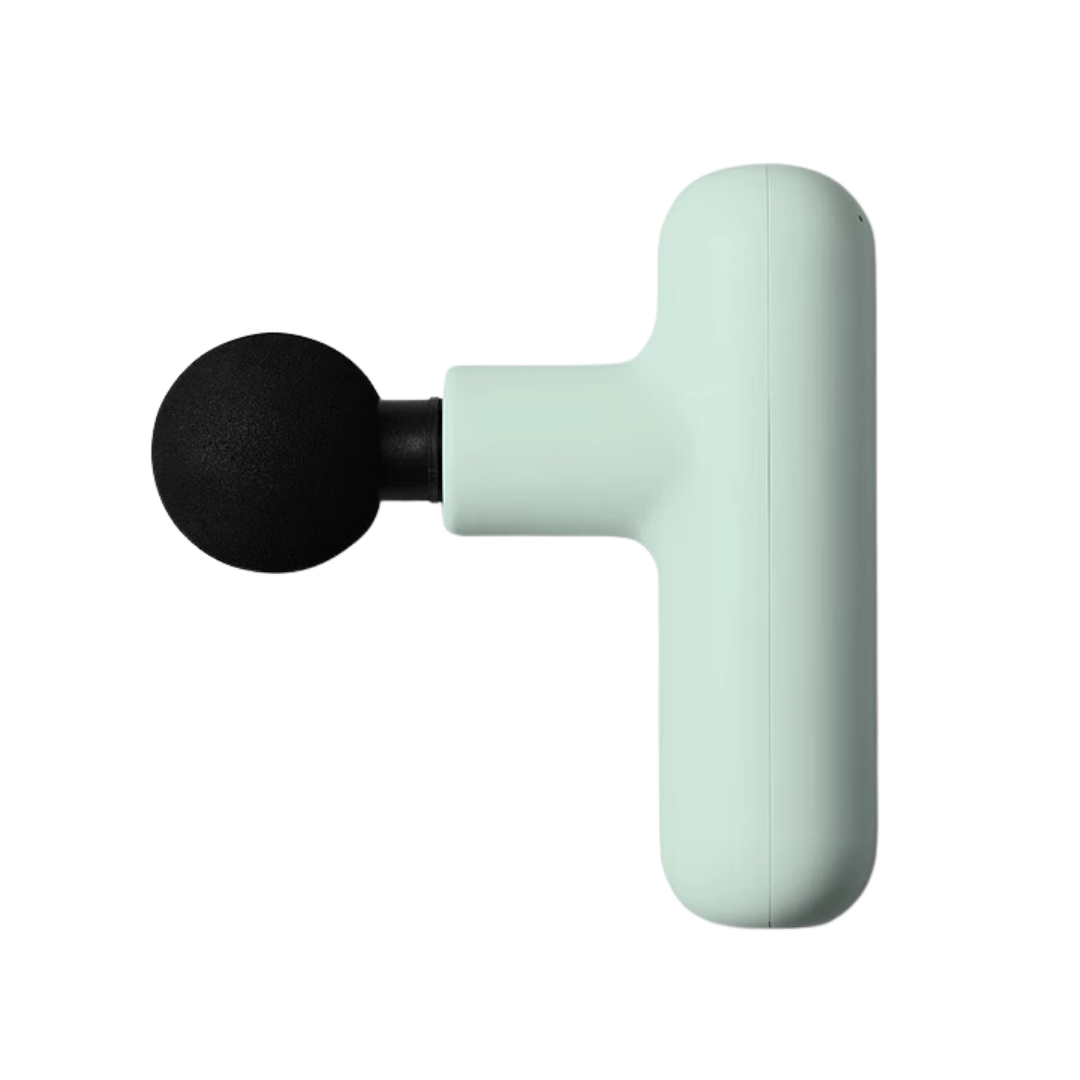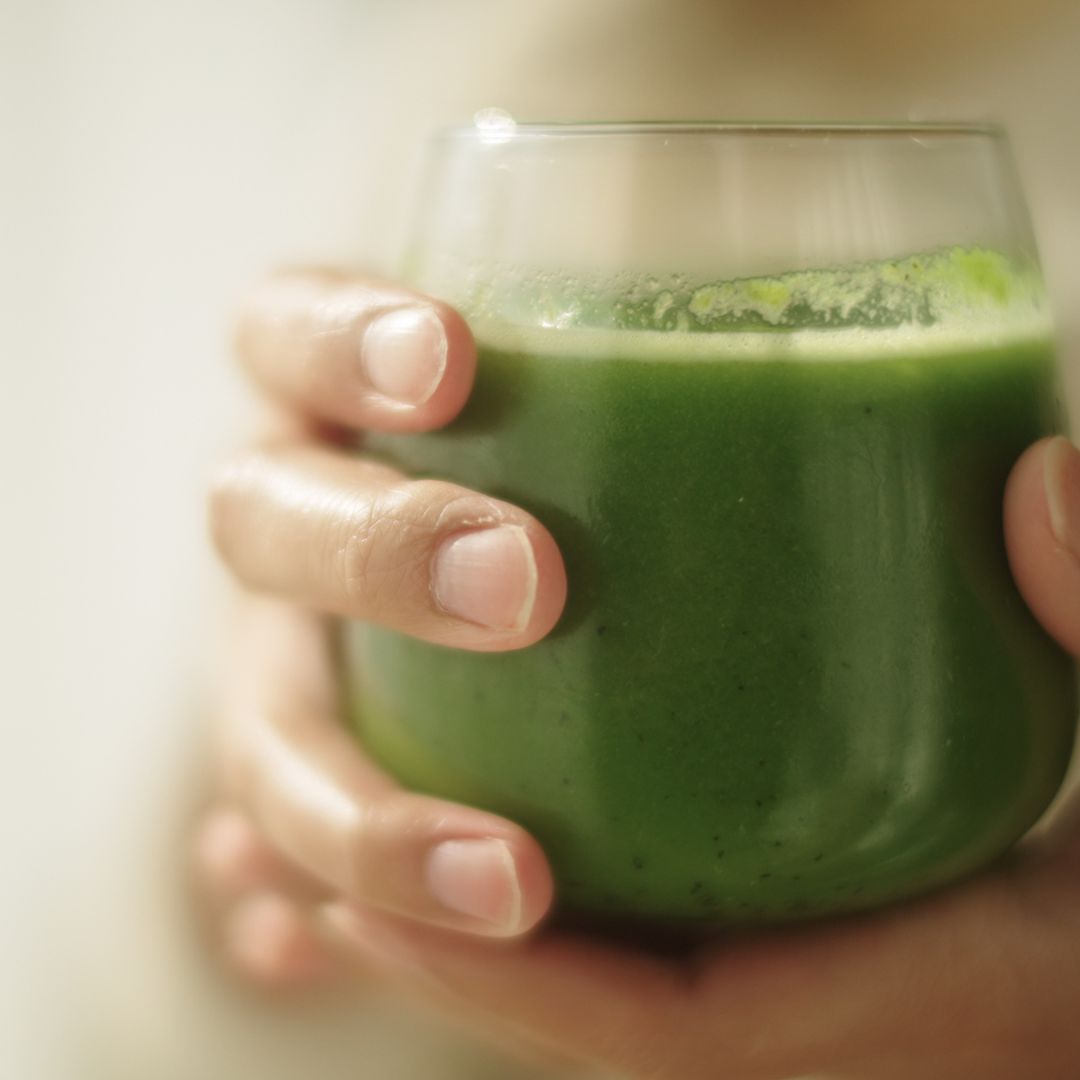As more brands launch their own alternatives, we ask top dieticians - do anti-glucose spike supplements actually work?
Seriously effective or serious fad?


Pop the term "glucose spike" into any search engine right now and you'll be inundated with results. Over the past couple of years, there's been a huge interest in how our blood glucose levels fluctuate throughout the day, with advice on managing spikes ranging from clothing our carbs (adding protein or fats to carbohydrates to flatten their associated sugar spike) to investing in continuous glucose monitors (CGMs) or even taking anti glucose spike supplements.
Among the noise around glucose is some compelling research (such as this study, published in the journal Frontiers in Cardiovascular Medicine) showing a link between blood sugar spikes and inflammation, which can lead to cardiovascular disease and other conditions.
All this is to say, we know that inflammation in the body is not a good thing. While glucose levels naturally fluctuate throughout the day according to what we're eating and when, it's generally accepted that if our blood sugar levels are wildly swinging from high to low, we're likely to suffer both long and short-term health implications, from low mood, fatigue, feeling cold and hungry to potentially developing more serious health complications.
This has led to a surge in wellness influencers promoting ways to control our insulin peaks and troughs, with anti-glucose spike supplements being hailed as a natural cure-all. Spearheaded by biochemist Jesse Inchauspé (aka The Glucose Goddess), Inchauspé launched her controversial anti-spike supplement last year, and the backlash from the nutrition community was - well, immediate. Experts have challenged the scientific backing behind Inchauspé's product as well doubting its efficacy and necessity (or lack of).
But she's far from alone: similar anti-glucose spike supplements are popping up left, right and centre RN. We know that supplements that promise the world are, for the most part, nothing more than expensive fads, but wanted to ask top experts whether these newly trending pills are any different.
Scroll for their honest take on the viral anti-glucose spike supplements. Do they really work, and - more importantly - do we actually need them? For more on all things glucose, read our explainers on inflammation diets, glucose monitors and blood sugar spikes, here. Wondering, do the Glucose Goddess hacks work? Senior Health Editor Ally Head explores, here.
Anti glucose spike supplements are trending, but what do the experts think?
What are anti glucose spike supplements?
First up, let's take a look at what the supplements actually are. "Anti-glucose spike supplements are supplements designed to help regulate blood sugar levels and prevent sharp spikes in blood glucose after having a meal," explains registered nutritional therapist and director of Ardere Wellbeing, Lauren Windas. "They typically contain ingredients such as cinnamon, chromium, berberine and alpha-lipoic acid that help to slow down the absorption of glucose, improve insulin sensitivity and enhance glucose metabolism."
Marie Claire Newsletter
Celebrity news, beauty, fashion advice, and fascinating features, delivered straight to your inbox!
@drchizikeji ♬ original sound - Dr. Chisom Ikeji
What are the purported benefits of anti glucose spike supplements?
Sweeping scepticism aside for a second, there are some legitimate benefits to not having massive blood sugar spikes. Research (such as this study, published in the PLOS Biology journal) shows that many people have so-called "covert" glucose spikes (ie not related to an insulin sensitivity such as diabetes) which increase their risk of developing cardiovascular disease and insulin resistance, a known precursor to diabetes.
The aim of the supplements is to naturally flatten out these spikes, resulting (ideally) in more sustained energy levels, and reducing the associated risks of spikes. "The goal of anti-glucose spike supplements is to minimise rapid blood sugar increases after meals," notes Harley Street nutritionist, Clarissa Lenherr. "This could, in theory, reduce insulin resistance over time by preventing repeated spikes, help manage cravings and energy crashes linked to glucose fluctuations and support metabolic health by keeping glucose levels more stable."
And there is some expert support for the claims, as registered dietician and author of How Not To Eat Ultra-Processed, Nichola Ludlam-Raine explains. "Some ingredients in these supplements, such as vinegar and soluble fibre, may slow carbohydrate absorption, leading to a more gradual rise in blood glucose," she tells MC UK. "Over time, better blood glucose control may help to support weight management, reduce the risk of type 2 diabetes, improve energy levels, and encourage more stable hunger hormones."
However, it's important to note that any evidence is purely anecdotal, and while some ingredients may have scientific backing, there haven't been any clinical trials on the supplements as a whole - but more on this below.
"While some ingredients may have modest benefits, whole food sources (like fibre-rich meals, protein, and healthy fats) remain the most effective and evidence-based way to manage blood sugar 'spikes'," advises Ludlam-Raine. "If someone is considering an anti-glucose spike supplement, I’d recommend speaking to a registered dietitian or healthcare provider first to ensure it's safe and suitable for their individual needs."
Who are anti glucose spike supplements useful for?
All this being said, there may be some benefits for some people taking the supplements - or, at the very least, being aware of how their body deals with food.
"Anti-glucose spike supplements may be of interest to individuals with insulin resistance, prediabetes, or type 2 diabetes, but they should never replace medical treatment or dietary changes," says Ludlam-Raine. "For most people, a balanced diet is the best way to manage blood sugar levels rather than relying on supplements."
And there are many ways that we can all support our blood sugar balance through daily habits, according to registered nutritional therapist and clinical director at Integral Wellness, Natalie Louise Burrows.
"Sustainable dietary and lifestyle changes remain the foundation of long-term health," she says. "Shifting our focus toward whole, nutrient-dense eating is far more impactful than seeking a quick fix, and for the majority of people, enjoying a slice of cake is not an issue; our body will naturally regulate it with appropriate insulin sensitivity. If blood sugar levels are generally balanced, occasional spikes are not a cause for concern."
@glucosegoddess_ The all-in-one supplement: reduces your glucose spikes AND increases GLP-1. Naturally. Feel the effect in 24 hours. Link in bio!
♬ original sound - Jessie Inchauspe
What does the current research into anti glucose spike supplements say?
Depending on which anti-glucose spike supplement you're looking at, some of the ingredients may have undergone scientific testing, but none of the supplements currently on offer have had rigorous testing for efficacy once the ingredients have been combined.
"While some of the ingredients in the supplements have been individually studied for their effects on blood sugar, the supplements themselves haven't undergone clinical trials," notes Burrows. "This means that while the components may have benefits, their combined effectiveness remains unproven."
Do anti glucose spike supplements actually work?
Well, the jury's out. Anecdotally, some people do report feeling fewer energy crashes on the supplements, but the experts warn that there is little to no actual science behind the claims.
"The majority of research suggests that the benefits [of taking the supplements] may be small, and importantly, we do not have clinical studies on the entire supplement formula to confirm real-world effects," cautions Lenherr. "Most studies have only looked at individual ingredients, and even those studies often have limitations such as small sample sizes and short durations. While some ingredients have promising preliminary research, the efficacy of these supplements - especially in individuals without diabetes - remains uncertain."
Shop MC UK's go-to wellbeing essentials now:
Nothing lifts our spirits quite like lighting a lushly-scented candle, and the Spring range from The White Company is the very essence of brighter days ahead: a blend of honeysuckle, rose and cut grass, it'll instantly transport you from a dreary February day to sunnier climes.

Name a more relaxing way to destress than an at-home massage gun: we'll wait. And these Lola massage guns are as aesthetically pleasing as they are relaxing - available in a choice of sugary pastel hues, they're right up our street.

We're making the recipes in this cookery book from Em the Nutritionist on repeat - look no further for midweek mealtime inspo that's quick, simple and delicious.

Last but by no means least, up your workout game with these soft, sweat-wicking and supportive leggings from Sweaty Betty.
How can we support healthy blood glucose levels through diet and lifestyle?
"Glucose spikes are a normal physiological process that our bodies are well-equipped to handle," says Lenherr. "For those with genuine metabolic concerns, the best approach is to work on long-term dietary and lifestyle changes rather than looking for a quick fix. Instead of relying on a supplement, the focus should be on proven, fundamental lifestyle and dietary habits that support blood sugar regulation, such as:
1. Prioritising fibre rich meals with vegetables, legumes, and whole grains to naturally slow glucose absorption.
2. Balancing meals with protein, healthy fats, and fibre to regulate glucose levels in a way that is both sustainable and enjoyable.
3. Engaging in regular physical activity, which significantly improves insulin sensitivity.
4. Managing stress and sleep, as both play key roles in blood sugar regulation."

Anna Bartter is a freelance journalist who writes about health, fitness and women's lifestyle for publications including Stylist, Metro and Psychologies, among others.
She's always on a quest to find a variety of fun and functional workouts that give you the most bang for your workout buck and she's passionate about championing movement for everyone's mental and physical wellbeing.
-
 Here's a rundown of The White Lotus cast members who have dated in real life
Here's a rundown of The White Lotus cast members who have dated in real lifeBy Jenny Proudfoot
-
 All the coolest brides are wearing drop-waist wedding dresses this year
All the coolest brides are wearing drop-waist wedding dresses this yearWedding Special Minimalist, nostalgic, and universally flattering
By Clementina Jackson
-
 Anya Hindmarch has just launched a fantastical diving shop in central London
Anya Hindmarch has just launched a fantastical diving shop in central LondonFor those who would rather be beside the seaside...
By Sofia Piza
-
 Road To Recovery: I'm a Health Editor and marathon runner who’s long struggled to make recovery a habit - enter, my lazy girl's guide to R&R
Road To Recovery: I'm a Health Editor and marathon runner who’s long struggled to make recovery a habit - enter, my lazy girl's guide to R&RRecovery is all too easy to skip when you’re busy, but it’s as essential as working out to boost wellbeing - which is where these handy tips come in.
By Ally Head
-
 I tried TikTok's lemon balm tea for a week to see if it can really help to reset your nervous system - my honest review
I tried TikTok's lemon balm tea for a week to see if it can really help to reset your nervous system - my honest reviewSit back and pour yourself a cup of calm.
By Anna Bartter
-
 The entire UK seems to be obsessed with saunas RN - 9 benefits to know about, if you're considering giving them a go
The entire UK seems to be obsessed with saunas RN - 9 benefits to know about, if you're considering giving them a goEnter your Scandi girl era.
By Anna Bartter
-
 10 common nutrition myths a registered dietician swears they'd never follow - and wants you to avoid, too
10 common nutrition myths a registered dietician swears they'd never follow - and wants you to avoid, tooYou might find these surprising...
By Katie Sims
-
 Wellness Escapes: I went to Bali in search of winter sun, I came home with a new lease of life
Wellness Escapes: I went to Bali in search of winter sun, I came home with a new lease of lifeThis White Lotus-style sanctuary taught me how to relax
By Mischa Anouk Smith
-
 As Mel Robbins' Let Them theory gains global traction - how the simple tool promises to transform your life
As Mel Robbins' Let Them theory gains global traction - how the simple tool promises to transform your lifeNot to mention, help you take back control.
By Katie Sims
-
 I tried Jennifer Aniston's 80/20 approach to wellness - and can't tell you how refreshing I've found it
I tried Jennifer Aniston's 80/20 approach to wellness - and can't tell you how refreshing I've found itIt's all about balance.
By Katie Sims
-
 It's one of the most fun home workouts you can do: 6 best exercise hula hoops to add to your fitness regime
It's one of the most fun home workouts you can do: 6 best exercise hula hoops to add to your fitness regimeThey're very affordable, too.
By Amelia Yeomans